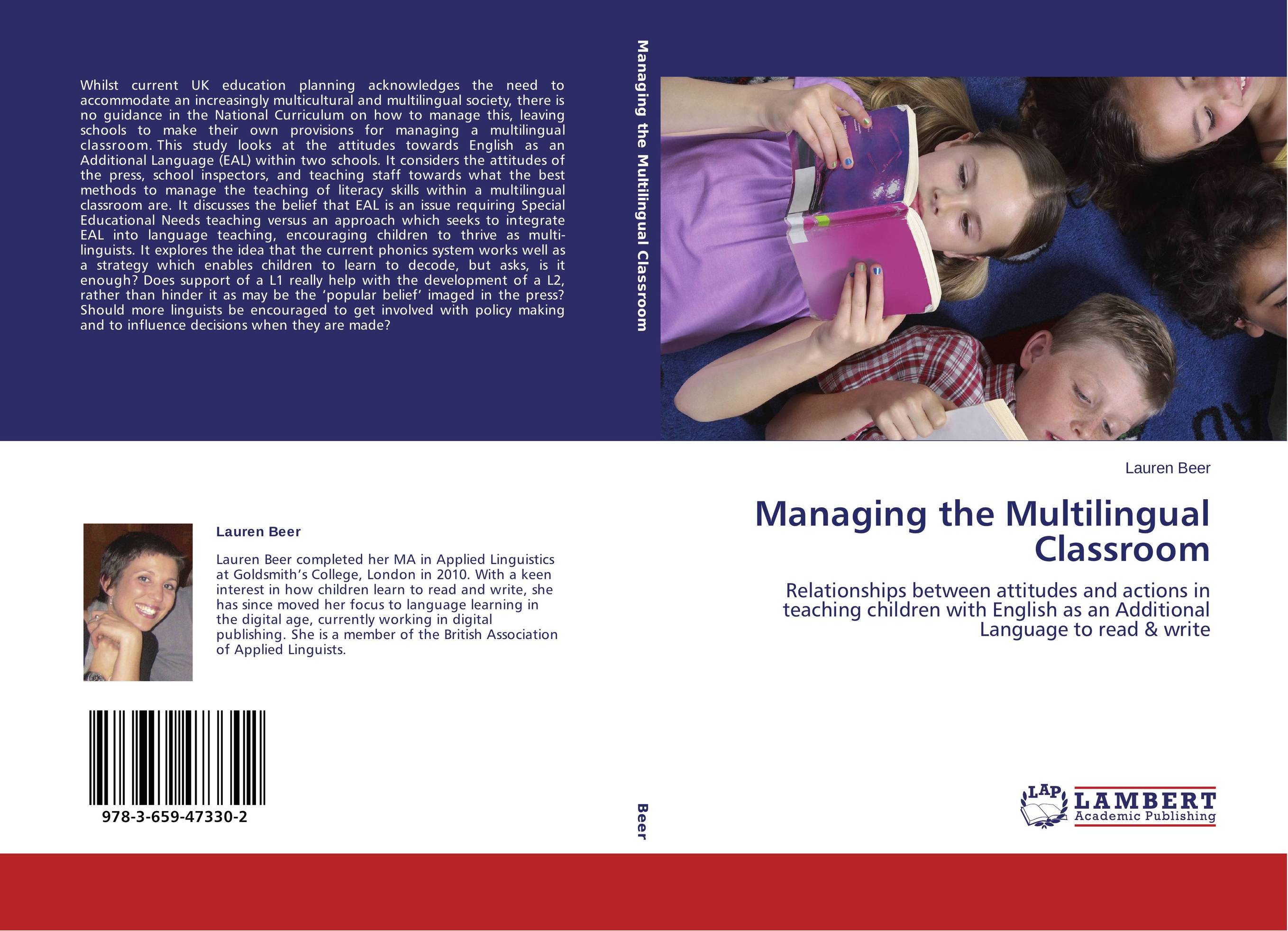| Поиск по каталогу |
|
(строгое соответствие)
|
- Профессиональная
- Научно-популярная
- Художественная
- Публицистика
- Детская
- Искусство
- Хобби, семья, дом
- Спорт
- Путеводители
- Блокноты, тетради, открытки
Managing the Multilingual Classroom. Relationships between attitudes and actions in teaching children with English as an Additional Language to read & write

В наличии
| Местонахождение: Алматы | Состояние экземпляра: новый |

Бумажная
версия
версия
Автор: Lauren Beer
ISBN: 9783659473302
Год издания: 2013
Формат книги: 60×90/16 (145×215 мм)
Количество страниц: 136
Издательство: LAP LAMBERT Academic Publishing
Цена: 36556 тг
Положить в корзину
| Способы доставки в город Алматы * комплектация (срок до отгрузки) не более 2 рабочих дней |
| Самовывоз из города Алматы (пункты самовывоза партнёра CDEK) |
| Курьерская доставка CDEK из города Москва |
| Доставка Почтой России из города Москва |
Аннотация: Whilst current UK education planning acknowledges the need to accommodate an increasingly multicultural and multilingual society, there is no guidance in the National Curriculum on how to manage this, leaving schools to make their own provisions for managing a multilingual classroom. This study looks at the attitudes towards English as an Additional Language (EAL) within two schools. It considers the attitudes of the press, school inspectors, and teaching staff towards what the best methods to manage the teaching of literacy skills within a multilingual classroom are. It discusses the belief that EAL is an issue requiring Special Educational Needs teaching versus an approach which seeks to integrate EAL into language teaching, encouraging children to thrive as multi-linguists. It explores the idea that the current phonics system works well as a strategy which enables children to learn to decode, but asks, is it enough? Does support of a L1 really help with the development of a L2, rather than hinder it as may be the ‘popular belief’ imaged in the press? Should more linguists be encouraged to get involved with policy making and to influence decisions when they are made?
Ключевые слова: Multilingualism with the classroom, Linguistic Ethnography, Multilingualism and Identity, Multilingualism and National Identity, Attitudes towards Multilingualism, Attitudes to Other Languages, Press Coverage of Multilingualism and Other Languages



